Revised version of story and the namesake of this blog
Love and do what you will
After the wars were long over I went to my mother’s hometown, a village near a small mountain chain called La Peña de Francia. I had visited that forgotten place to bury my mother Pilar in a Church there. And though an agnostic I was not about to go against her wishes.
Later I went to the only bar in town and ended up waking up the mayor to serve me lunch. He obliged and made some comments about Hollywood movies while he fixed me a combination plate of pork loin, and French fries with an egg over easy. My father had been an American who came to Spain as a journalist and became one of the first American bullfighters, hobnobbing with the likes of Manolete and Hemingway. After paying for my meal I walked down the road to the bus stop and bought a one-way ticket to Madrid. I had planned to see a professor friend there who knew my father from the old days.
I first met him in the late 30’s in Paris near Montmartre. The place where they say Saint Denis was beheaded by the Romans. We met and talked at a café down from Sacré Coeur, the sound of organ grinders in the distance. Personally, I felt like Dalí making his pilgrimage to see Picasso at the turn of the century. I was that star-struck.
You see Ignacio Villarrutia was one of the illustrious five at the Complutense in Madrid. They were part of a rebirth of intellectual life after centuries of decay.
When I met him in May of that year Villarrutia was on sabbatical lecturing at the Sorbonne. Ignacio was born in Guipúzcoa near the resort town San Sebastián where old Basque fishermen sneered at vacationers. His grandmother was a staunch Carlist still embroiled in the civil wars of the last century. Ignacio or Iñaki in his native Basque dialect had been educated by the Jesuits and later studied philosophy at Madrid and then in Germany with the Teutonic masters.
He then went on to study Theology and Eastern Languages at Louvain, Belgium and began preparing for priestly orders. After pursuing this course of study he returned to present his doctoral thesis in Madrid under Javier Covarrubias a philosophical luminary of the new century.
Ignacio eventually got a job lecturing on Philosophy at University. He was a star professor in philosophy along with his mentor Covarrubias as well as Iorgos Teoupolous in Art History, Enrique Requessens for Ethics, and Julián Velázquez in Spanish Philology. As for Villarrutia students flocked to Ignacio’s lectures to hear him expound on the history of Western Philosophy.
When teaching he would speak in his usual staid tone: “Ladies and Gentleman, in truth the history of philosophy involves the history of metaphysics. Metaphysics being the basic underpinnings of the world we live in, the undercurrents of our relation to the other. In the West metaphysics involved a single seminal idea: the concept of Creation. This means not manipulation or coercion of pieces and parts but something radically different: The Hebraic Creation out of nothing. While said concept is absent from the great Greek thinkers Plato and Aristotle it has a decisive role in Judeo-Christian Philosophy. For example, the reinterpretation of Aristotle in Saint Thomas Aquinas involved the postulation of being within the horizon of non-being. So the Western conception of the world is defined by contingency. Later philosophy simply redefines this relationship under different categories. To show a few examples: fallibility in Descartes, probability in Leibniz, and dialectic in Hegel. Modern Philosophy continually marches towards the abyss left by creation out of nothing and tends toward nihilism. Some examples are radical skepticism, which denies all knowledge as well as artistic movements that deny meaning to the world as such. Naïve materialism and idealism are just the two extremes of this tendency. Yet a philosophy truly worthy of the name should aspire to much more.”
His words formed an impenetrable mist in the minds of those present. While most students didn’t know what he was talking about they pretended to understand nonetheless. Yet Ignacio was gracious to everyone and was well liked by both Faculty and students. He had such personal warmth and love of his subject that one could not help but get caught up in it.
But during the early 30’s the political climate went through a radical shift with the creation of the 2nd Republic and the exile of the King. Tired of the military and the royalty being always in co hoots Ignacio was in support of the change as was much of the Faculty. It troubled him that the Spanish Church had become too nationalistic and showed signs of losing its Catholic character. There was a general feeling that with this new government positive change was possible.
Teresa Cepeda, a young woman, began attending his lectures around the same time. Interestingly, she came to study under Covarrubias whose style was the exact opposite of Ignacio. You see, Javier Covarrubias though and wrote with meridian clarity: “Philosophy is thought brought to life.” He offered to the world a surface of simplicity behind which lingered complex thoughts. Whereas Ignacio cast a net of complexity that drew everything together into a synthesis.
Our Teresa hailed from Andalusia in Southern Spain a land full of olive groves and roving bulls. She grew up in Córdoba the hometown of the philosophers Seneca and Maimonides. Naturally inquisitive, she was encouraged by her father, a bookseller and amateur scholar. Ignacio noticed her immediately. How could he not? She shared his love for the subject matter coupled with a fondness for the smell of books.
On a typical day Ignacio would pose a question to his class, “And so what according to Aristotle and St. Thomas Aquinas is the object of the will?” Then he would search the lecture hall only to fall upon Teresa’s outstretched hand, “Teresa.”
At which she would respond, “The object of the will is the good. Or as St. Augustine says: Love and do what you will.”
“Very good Teresa,” Ignacio would comment, smiling tenderly.
Her thesis dealt with a philosophy of confianza whereby she attempted to explain “the trust” we have in reason. “In that what we search for we must necessarily desire and trust in our method to find it. Confianza is a faith or a trusting whereby one opens up and gives oneself to the other, be it a subject of study, a person, or even God. Therefore self-love in the Divine Hypostases is the ultimate archetype of the concept of confianza, each giving to the other in perfect love. For if we do not trust then we will not act and if we do not love our subject in the end we will not know it. All of this is implied in the intellectual act in which there exists a fiat of intelligibility between the knower and what is known. However, this connection has crumbled with the expanse of the autonomy of reason. Yet this is a false autonomy as well as a false reason. Now the task at hand is to bridge this gaping void via confianza as well as to rediscover human understanding in its fullness.”
As it turned out, Ignacio became fond of his pupil overtime and she of him. To the point where he had serious reservations regarding his priestly vocation, the former fondness having distilled into love. They would often stroll together in the Retiro Park discussing life and its mysteries under the trees. Yet this was at the same period when the Republic showed signs of veering toward anarchy as liberals and conservatives grappled for power. As one side gained a majority it would chastise its opponents until it was time for the other to do the same. Presently the liberals were in power, which meant a rise in anti-clericalism. The president of the Republic was one of the bien pensants of the period. And while he displayed an air of magnanimousness he did little to halt the violence. Meanwhile churches burned, nuns were raped, and priests murdered. It came to the point where Ignacio had to hide his collar just to keep from being harassed.
This went on until one day Javier cornered him in the Faculty office, “You know Nacho, I think you should take a sabbatical until this whole thing cools down. I’ve written to the linguist Beneviste in Paris and it appears you can expand on your Oriental Languages while teaching the odd class in philosophy. Well how about it?”
He agreed and went to the Sorbonne the following April of ’36. Teresa would finish her philosophical studies while he lectured at the Sorbonne and received tutoring in Sumerian and Akkadian. He even went to Rome to request an indult so they could be married upon his return.
When I met with him he was knee-deep in Ancient Oriental Lore and seemed distracted. I had been sent to Paris by my father to interview Ignacio for a news story.
“How are things in Madrid?” he inquired nervously sipping his coffee and biting on a brioche.
“Ummm, well, there’s been a bit of a problem. Remember those generals from the wars in Africa”
“Ahuh.”
“Well they’ve risen up against the Republic.”
“It’s serious then?”
“Very.”
“And the Government?”
“They don’t seem to have a clue I’m afraid.”
A sudden realization dawned on Ignacio, shaking him out of an intellectual fog,
“That means, Teresa, is she-“
“Fine for now as far as I know. But I’d check on her. You know my father?”
He smiled for a second, “A yes the American bullfighter . . .”
“It turns out he’s been receiving death threats.”
“What? Why?”
“No one knows for sure. Maybe they don’t like his articles. I think he’s criticized the government a couple of times.”
“Oh. Well certain lines of thought would say morality is expendable until a just social order can be created. Yet this view ignores our own humanity for man by his nature is a moral being. We cannot help but be moral because what we will we take to be a good even if we are mistaken. The problem with these lines of thought then is they take expediency as the ultimate good thereby permitting injustices to be tolerated as a means to an end. But at what cost?”
“Uhh, yeah,” I mumbled, this being my first exposure to Ignacio’s philosophical haze.
Villarrutia had kept in contact with his colleagues in Spain via phone calls and the occasional letter. Though we asked an operator to connect him he was unable to reach Madrid at the time. There was something wrong with the line she said. Concerned he sent a telegram. We waited for days with no response. Then a letter from Teresa came.
+J. M. J.+
Dearest Nacho,
I am almost finished with my studies and plan to meet with you in Paris soon. Things are hectic here, as the instability of the Government continues. We can only pray to Our Lady that she intercede for our nation before the Lord and save it from strife. I often fear that both sides in these discussions are of a piece. Each one claims to be Abel but is in fact a murderous Cain. Yet in these turbulous times there is no exit, no way for us to go forward save Divine Grace. So that one day the Church may rise again, following in the footsteps of Her Shepherd as in the Song of Songs: Surge amica mea et veni “Arise My Beloved and come with me.”
Love,
Teresa
Sadly those were Teresa’s last words to Ignacio. Things remained sketchy for a while as reports from Spain trickled in. Hitler, Mussolini send troops to Nationalists. Stalin behind Communists. America Legions join Republican cause. This state of misty uncertainty continued throughout the war. The atmosphere became worse as the Republican Army faltered. And as it turned out Spain was just a playground for Hitler and Stalin’s power games. As evidenced by the bombing of Guernica, which horrified Ignacio when we went to see Picasso’s painting at the pavilion in Paris.
What little I can tell students around campus began calling Teresa the priest’s girlfriend and snickered “barragana” as she passed by. This term alluded to the concubines some priests kept in the late middle ages and was a by-word for anticlericalism. These harassments continued until one day she simply didn’t come home. It was generally assumed she had been executed by radicals.
“Well they’re not really sure,” Ignacio commented one day, his eyes heavy and sad.
At the beginning of the 40’s I followed my parents to the cold plains of North Dakota where my dad grew up. Ignacio returned to Spain to find his homeland utterly changed. Most of his friends and colleagues, if not already dead, had left the country. And try as he might to find work in it was hopeless given that the Nationalists frowned upon his past associations. On the other end, ex-patriots wouldn’t lift a finger to help him since he was anathema being a priest and a Catholic.
Javier was left in limbo, having given up his collar for a wife he never had. So he decided to devote himself to the priesthood of philosophy. At which time he wrote to me and I returned to Spain in the early 50’s. Madrid was sad after the post-war years of starvation. A row of ugly gray now buildings lined the streets. And while a lively sign from the 30’s for Tío Pepe brand sherry still graced the Puerta del Sol it was a memory of a dream.
I met with Ignacio in his apartment. The place was crammed with books, some volumes continuing onto the floor with notes strewn everywhere. I noticed that the only source of light in the room was a picture of Teresa on a dresser. It showed her in the vigor of youth, full hope for the future. Ignacio greeted me, taking me by the hand, and said that he had begun giving private seminars to those willing to learn. I soon became a regular attendee.
In his internal exile Ignacio had few friends. Just a small group of regulars to his lectures. One of these souls, Enrique Milá, a Catalan, was a musicologist who specialized in 16th century polyphony. A pianist, Milá composed “little diddies” on the instrument which were masterful for their compactness. Like panels on a tapestry, each chord produced a tone that played off another, cascading before the ears. “Well Ignacio there you have it,” he would often remark during our tertulias.
Then there was Francisco Pacheco the painter who lived in the apartment block across the way. An artist with curious work habits Francisco would spend decades on a single canvas. These painting included seemingly mundane views of buildings, doors, and pavement behind which hid a great mystery. At one meeting Pacheco expressed the idea that: “most men who endorse materialistic philosophies have merely spent their lives walking on cobblestone and pavement. Which brings to mind Campanella, the 16th century Italian thinker, who posited that expansion and contraction are the only properties of matter. Interestingly, on a cold day you notice the same phenomenon when trudging over brick or stone.”
Together we formed something of a city within a city. A city of friendship amid the bitter politics of the times. Yet through it all Ignacio retained his good humor, ever faithful to his profession and his creed. I must confess I do not understand it. All the pomp and ritual of religion. Yet neither do I comprehend the great hatred it arouses.
Meanwhile, an unbearable silence descended on the name Ignacio Villarrutia as if forbidden on the lips of men. In the meantime I would travel periodically between Europe and America. And there he sat in his apartment full of books utterly alone. No doubt he had confidants, yet he remained under a cloud of solitude. I often mused that beneath it all he still pined for Teresa.
The truth is Ignacio was an enigma whose very existence challenged the reigning political climate. So he was passed over. Never able to enter onto the public stage. He became like everyman and no man, buried under mounds of silence. And it was under this silence that our city of philosophers lived, moved and had its being. Only there could we find peace.
I had returned to Spain that last time following the death of Franco. And after seeing my mother to her final rest and chatting up the mayor I headed in a bus for Madrid. Upon arriving I took the metro to the familiar stop. Yet I couldn’t find Ignacio’s address. Thinking I’d forgotten the number I checked again. But the name Villarrutia and the apartment were nowhere to be found. All I saw were a bunch of teenagers loitering on the steps. Then in a moment of idiocy I asked one of them if they knew a Villarrutia.
“Villa-whose-it? Look like we give a damn, man?” They proceeded to pass around a two-liter Coke bottle filled with an assortment of alcohol in a bizarre ritual known as botellón.
Though I checked the phonebook and called information all were dead ends. Had I really been gone that long? It was as if I had left a secret kingdom and couldn’t get back in again. Frustrated I went to a café and read the newspaper while eating chocolate with churros. Nothing.
“Where have you been?” A rough voice called out behind me.
“Huh?”
“He’s gone my friend. He’s gone.” It was an old and weathered Enrique Milá. He took out his wallet and handed me a piece of paper, “Well there you have it.”
It was Ignacio’s obit: Villarrutia, Ignacio Philosopher 189- 198- . I looked up at Milá’s cataract-filled eyes “When did it happen?”
“A few months ago.”
“And there was no more news?”
“Not now with all the hubbub over the Transition. They’re writing a new constitution, you know?”
“Really?”
Enrique took me to a civilian cemetery in the outskirts of the city. “He wanted to be buried next to his beloved Teresa,” he explained, placing some flowers on the ground.
I thought of that picture of her I had seen and that look of hope only to peer at the graves like two placards rising out of the ground. Then I spied a familiar phrase etched into the surface of one of the headstones.
“Come with me,” said a voice from the wind. It was Enrique. He motioned for me to follow and we went up to his apartment. He had a modest flat with a nice grand piano. Enrique placed his fingers gently on the keys. “I call this little diddie, Surge amica mea et veni.”
With that Milá began to play. He started off in an ascending movement tickled by lightness. This gave way to a graceful rhythm as chords filled the apartment. There followed a shift to a minor key as he descended to the grave notes. This set off a low humming in the ivories. After a heavy silence a slight ringing came. Then a graceful rhythm danced across the keys. Surging forward, the melody transported me beyond the apartment, and the city. Out into the country, beyond the sea, until I thought I saw Heaven and heard a voice resounding: “Arise My Beloved and Come with Me.”

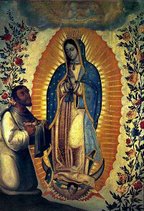
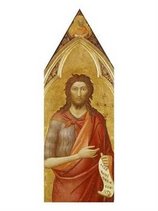


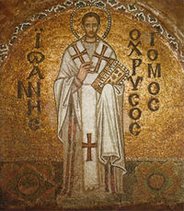
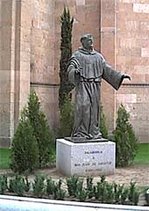

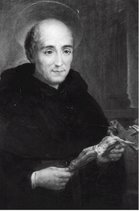
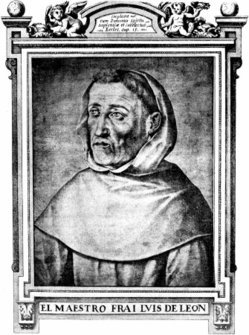
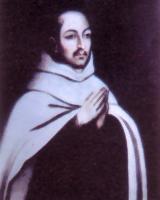


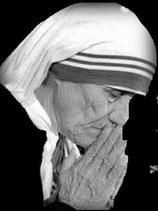
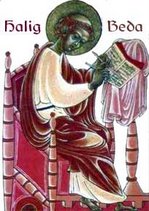
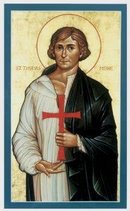
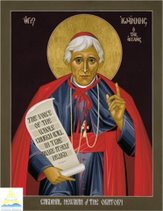




No comments:
Post a Comment